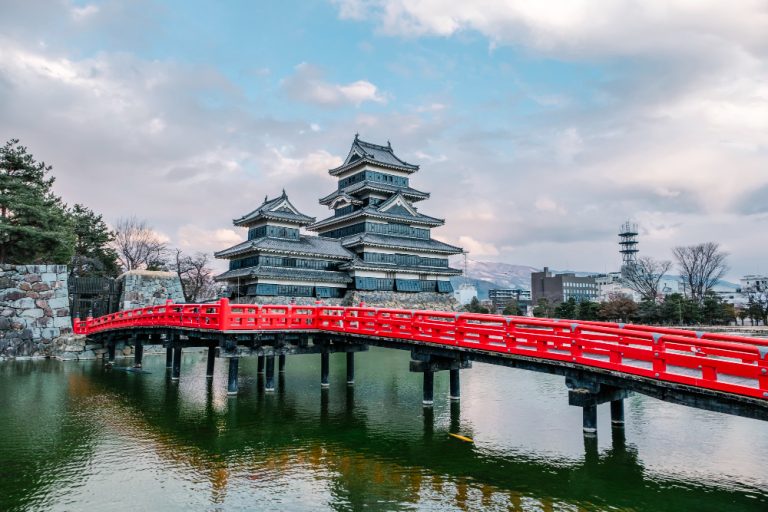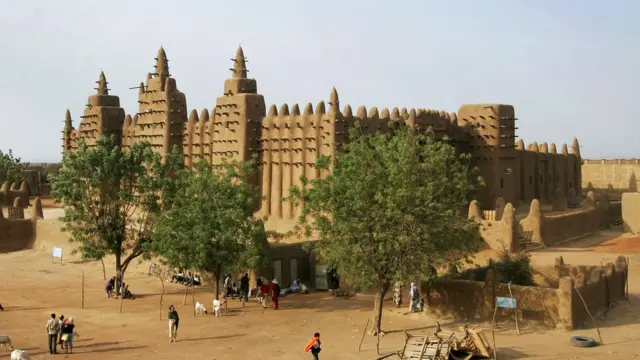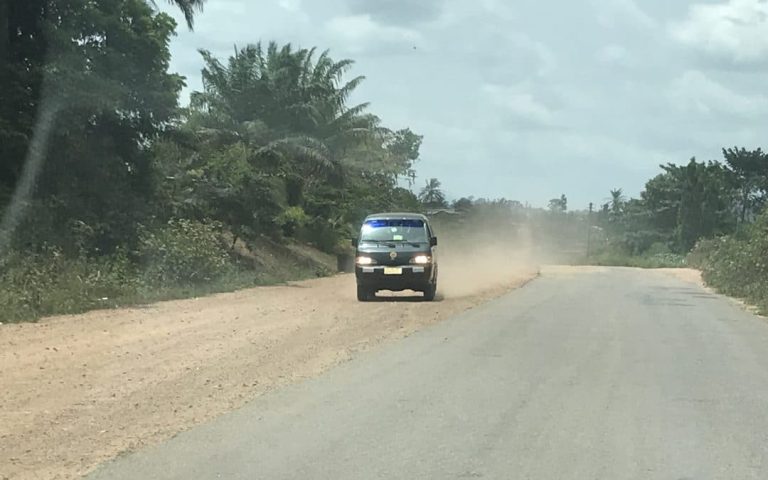Ghana, known for its rich culture, warm hospitality, and stable economy, has become an increasingly popular destination for Nigerians looking to relocate. This West African nation offers a blend of modern amenities and traditional charm, making it an attractive option for those seeking a new home. This guide will provide detailed information on the best cities to live in Ghana, the requirements and process for obtaining a visa, and what to expect when relocating from Nigeria to Ghana.
Best Cities to Live in Ghana
1. Accra
Accra, the capital city of Ghana, is a bustling metropolis known for its vibrant nightlife, historical sites, and modern infrastructure. It is the economic and administrative hub of the country.
Why Live Here:
- Job Opportunities: Accra hosts many multinational companies and offers numerous job opportunities, especially in the finance, IT, and services sectors.
- Educational Institutions: The city is home to some of the best educational institutions in Ghana, including the University of Ghana.
- Amenities: Accra boasts modern shopping malls, healthcare facilities, and entertainment options.
Estimated Cost of Living:
- Accommodation: Monthly rent for a one-bedroom apartment in the city center is approximately GHS 2,500 – 4,000 ($250 – $400), while outside the city center it ranges from GHS 1,500 – 2,500 ($150 – $250).
- Utilities: Basic utilities (electricity, heating, cooling, water, garbage) cost around GHS 500 – 800 ($50 – $80) per month.
- Transportation: A monthly public transport pass costs about GHS 200 – 300 ($20 – $30). Taxis are available and relatively affordable.
2. Kumasi
Kumasi, the capital of the Ashanti Region, is known for its rich cultural heritage and historical significance. It is often referred to as the “Garden City” due to its lush surroundings.
Why Live Here:
- Cultural Hub: Kumasi is a center for Ghanaian culture and tradition, with numerous festivals and cultural events.
- Cost of Living: The cost of living in Kumasi is relatively lower than in Accra, making it an affordable option.
- Commerce: The city is a major commercial hub, particularly for the trading of goods and crafts.
Estimated Cost of Living:
- Accommodation: Monthly rent for a one-bedroom apartment in the city center is approximately GHS 1,200 – 2,500 ($120 – $250), while outside the city center it ranges from GHS 800 – 1,500 ($80 – $150).
- Utilities: Basic utilities cost around GHS 400 – 600 ($40 – $60) per month.
- Transportation: Public transport is very affordable, with a monthly pass costing around GHS 150 – 250 ($15 – $25).
3. Takoradi
Takoradi, part of the twin city Sekondi-Takoradi in the Western Region, is a significant industrial and commercial center, especially known for its port.
Why Live Here:
- Industrial Opportunities: The city offers many job opportunities in the industrial and manufacturing sectors.
- Coastal Living: Takoradi is located along the coast, offering beautiful beaches and a relaxed lifestyle.
- Economic Growth: The city is experiencing rapid economic growth, particularly due to the oil and gas industry.
Estimated Cost of Living:
- Accommodation: Monthly rent for a one-bedroom apartment in the city center is approximately GHS 1,500 – 3,000 ($150 – $300), while outside the city center it ranges from GHS 1,000 – 1,800 ($100 – $180).
- Utilities: Basic utilities cost around GHS 450 – 650 ($45 – $65) per month.
- Transportation: A monthly public transport pass costs about GHS 180 – 250 ($18 – $25).
4. Tamale
Tamale, the capital of the Northern Region, is known for its rapid development and growing infrastructure.
Why Live Here:
- Development: Tamale is one of the fastest-growing cities in Ghana, with significant investments in infrastructure and urban development.
- Community: The city has a strong sense of community and is known for its friendly and welcoming residents.
- Cost of Living: Tamale offers a lower cost of living compared to southern cities like Accra and Kumasi.
Estimated Cost of Living:
- Accommodation: Monthly rent for a one-bedroom apartment in the city center is approximately GHS 800 – 1,500 ($80 – $150), while outside the city center it ranges from GHS 600 – 1,200 ($60 – $120).
- Utilities: Basic utilities cost around GHS 350 – 550 ($35 – $55) per month.
- Transportation: Public transport is very affordable, with a monthly pass costing around GHS 100 – 200 ($10 – $20).
Visa Requirements and Application Process for Nigerians Relocating to Ghana
Types of Visas
- Tourist Visa: For short visits and tourism purposes.
- Business Visa: For conducting business activities in Ghana.
- Work Visa: For employment in Ghana.
- Student Visa: For pursuing education in Ghanaian institutions.
- Resident Permit: For long-term residency in Ghana.
Requirements for a Visa
The specific requirements may vary depending on the type of visa you are applying for. However, the general requirements include:
- Valid Passport: A passport valid for at least six months from the date of entry into Ghana.
- Visa Application Form: Completed and signed visa application form.
- Passport Photographs: Two recent passport-sized photographs.
- Travel Itinerary: Details of your travel plans, including flight bookings.
- Proof of Accommodation: Hotel reservations or a letter of invitation from a host in Ghana.
- Financial Proof: Evidence of sufficient funds to cover your stay in Ghana.
- Yellow Fever Vaccination Certificate: Proof of yellow fever vaccination.
Additional Requirements for Specific Visas
1. Business Visa:
- Letter of invitation from a Ghanaian business or organization.
- Evidence of business activities in Nigeria.
2. Work Visa:
- Employment contract or offer letter from a Ghanaian employer.
- Approval from the Ghana Immigration Service.
3. Student Visa:
- Admission letter from a recognized educational institution in Ghana.
- Proof of payment of school fees.
4. Resident Permit:
- Proof of long-term accommodation.
- Police clearance certificate from Nigeria.
How to Apply for a Visa
1. Complete the Application Form
- Obtain the visa application form from the Ghanaian embassy or consulate in Nigeria or download it from their official website.
- Fill out the form accurately and legibly.
2. Gather Required Documents:
- Collect all necessary documents as per the visa type requirements.
- Ensure all documents are up-to-date and valid.
3. Submit the Application:
- Submit your completed application form and supporting documents to the Ghanaian embassy or consulate.
- Pay the applicable visa fee.
4. Attend an Interview:
- Depending on the visa type, you may be required to attend an interview at the embassy or consulate.
5. Wait for Processing:
- The processing time for visa applications can vary, so it is advisable to apply well in advance of your planned travel date.
- You can check the status of your application online or contact the embassy for updates.
6. Receive Your Visa:
- Once your visa is approved, you will be notified to collect it from the embassy or consulate.
What to Expect When Relocating to Ghana
Culture and Lifestyle
Ghana is known for its rich cultural heritage and vibrant traditions. As a Nigerian relocating to Ghana, you can expect to experience:
- Friendly and Welcoming People: Ghanaians are known for their hospitality and friendliness, making it easier for newcomers to integrate.
- Festivals and Celebrations: Ghana boasts numerous festivals throughout the year, celebrating everything from harvests to historical events.
- Traditional and Modern Blend: The country offers a mix of traditional customs and modern lifestyles, providing a unique cultural experience.
Language
- English: English is the official language of Ghana, making communication relatively easy for Nigerians.
- Local Languages: There are also several local languages spoken across the country, including Akan, Ewe, and Ga. Learning a few phrases in the local language can be beneficial and appreciated.
Cost of Living
The cost of living in Ghana can vary depending on the city you choose to live in. Generally, the cost of living in Accra is higher compared to other cities like Kumasi, Takoradi, and Tamale.
- Accommodation: Housing costs can range from affordable to expensive, depending on the location and type of accommodation.
- Transportation: Public transportation is widely available and affordable. Taxis, buses, and tro-tros (shared minibuses) are common modes of transport.
- Food: The cost of food can be reasonable, with a variety of local and international options available. Markets, street food, and supermarkets offer diverse choices.
Healthcare
- Healthcare Facilities: Ghana has both public and private healthcare facilities. While private healthcare is generally of higher quality, it can be more expensive.
- Health Insurance: It is advisable to obtain health insurance to cover medical expenses. Some employers may provide health insurance as part of their employment package.
Safety and Security
- General Safety: Ghana is considered one of the safest countries in West Africa. However, it is important to stay vigilant and take common safety precautions.
- Emergency Services: Emergency services are available, including police, fire, and medical assistance. It is useful to have the emergency contact numbers handy.
Employment and Business Opportunities
- Job Market: Ghana offers various employment opportunities, particularly in sectors such as finance, IT, education, healthcare, and construction.
- Starting a Business: The Ghanaian government encourages foreign investment and offers support for entrepreneurs. The process of registering a business is relatively straightforward.
Education
- Educational Institutions: Ghana has a range of educational institutions, from primary schools to universities. The University of Ghana, Kwame Nkrumah University of Science and Technology (KNUST), and Ashesi University are among the top universities.
- Curriculum: The educational curriculum in Ghana is similar to that in Nigeria, making it easier for Nigerian students to adapt.
Social Life
- Community and Social Activities: Ghanaians are social and community-oriented. There are numerous clubs, societies, and community groups to join, providing opportunities to make friends and integrate.
- Recreational Activities: Ghana offers a variety of recreational activities, including beaches, parks, sports, and cultural events.
Legal and Administrative Matters
- Resident Permit Renewal: Ensure you renew your resident permit before it expires to avoid any legal issues.
- Local Registration: It is important to register with local authorities, such as the Ghana Immigration Service, upon arrival.
Relocating to Ghana as a Nigerian can be a rewarding experience, offering new opportunities and a rich cultural environment. By understanding the visa requirements, selecting the right city to live in, and knowing what to expect, you can make the transition smoother and more enjoyable. Whether you are moving for work, study, or a fresh start, Ghana welcomes you with open arms and a vibrant community.








Leave a Comment